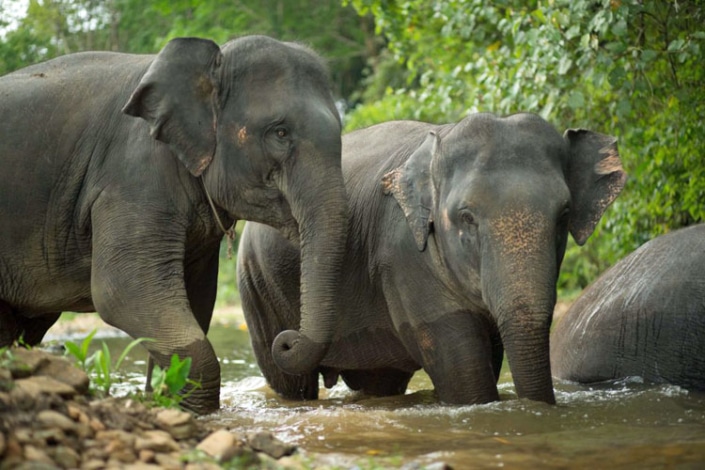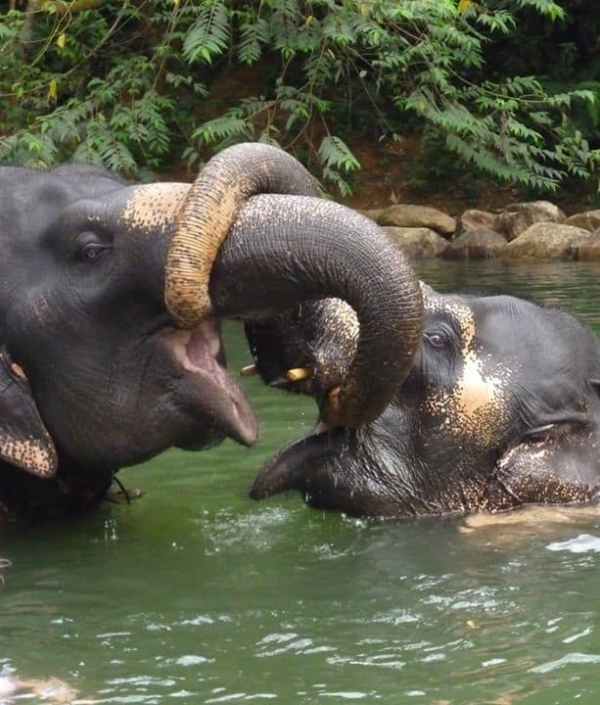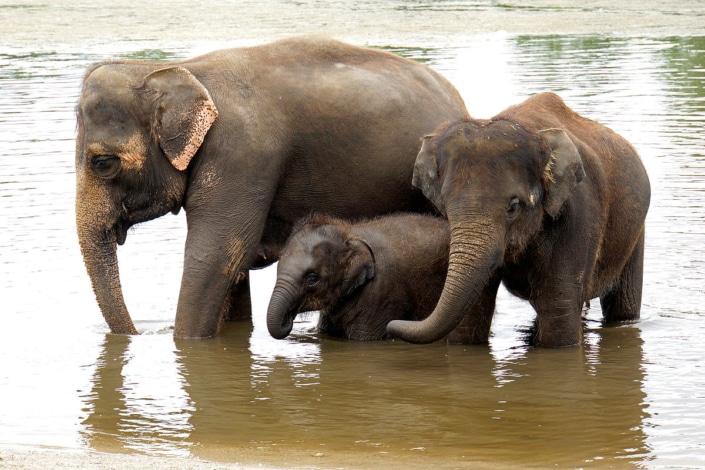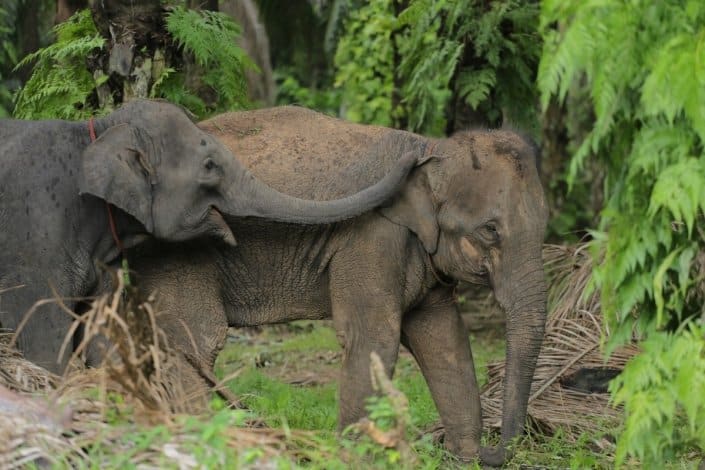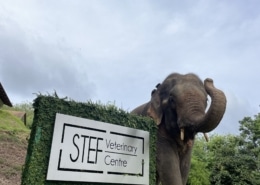Unravelling the Depth of Elephant Emotions: Empathy and Altruism in the Face of Adversity
People love elephants; a statement we believe most people can agree on…
They hold a profound place in the formative experience of many the world over, that memory of a moulded grey plastic toy reminding us of our own childhood, the simple and long repeated mantra of E is for Elephant, and for some in the East of the world; seeing elephants almost every day on tapestries and religious architecture. The love of the Elephant in the human imagination cannot be understated.
What has long been taken for granted is an animal’s power in revealing a hidden world of emotion to us. Recent research has shown an incredible capacity for empathy and altruism in elephants, showcasing a remarkable level of emotional intelligence. As we delve into the realm of elephant welfare and connection, we witness astounding displays of empathy, selflessness and problem-solving. This insight calls upon us to protect these gentle beings and their unique way of experiencing the world.
Leadership, Kinship, and Collective Nurturing
Elephants reveal a social fabric that is as intricate as it is awe-inspiring. These magnificent creatures form deep, cohesive bonds within their herds, demonstrating remarkable levels of intelligence and emotional sensitivity.
Elephants are highly social beings, living in matriarchal groups led by an experienced and wise female, but their relationships radiate outward into other clan groups, individual males, stranger elephants and even other animals. Herds often consist of closely related family members, fostering a strong sense of kinship. The birth of a new calf is a moment of celebration for the entire herd, and their nurturing nature is evident in how they collectively care for and protect the young ones. Within these tight-knit communities, elephants communicate using an array of vocalizations, gestures, and tactile signals, enabling them to coordinate activities and maintain social harmony.
Astounding Problem-solving Capabilities
Their intelligence is striking, as they display remarkable problem-solving skills and adaptability. Elephants are known to remember intricate details of their environment, allowing them to locate resources like water and food during challenging times. The phrase ‘an elephant never forgets’ has an essence of truth, as elephants have been known to remember and recognise each other, watering holes, areas of trees, and even their Mahouts after a great many years. Their use of tools, such as branches, to swat away insects or break open fruits, further highlights their cognitive abilities.
Empathy in Action
Moreover, their compassionate nature is evident in how they react to one another’s emotional states, comforting and supporting individuals in distress. Elephants respond with deep rumbling sounds and outstretched ears, mimicking the emotions of their troubled herd members. Even when not in danger themselves, in times of crisis they rush to offer comfort by touching and vocalizing, displaying a profound bond that surpasses the assumptions of what animals can feel. Witnessing their compassion, we are reminded that they care deeply for each other, just as we do.
The Altruistic Heart of Asian Elephants
Asian elephants, in particular, demonstrate acts of altruism that leave us in awe. This bravery underscores their innate sense of altruism and selflessness, proving that they prioritise the well-being of their herd above all else. We see this clearly demonstrated often when they converge on water pools to quench their thirst. These natural watering holes often have muddy banks that can pose challenges, especially for young calves who are a little clumsy on their feet. However, displaying remarkable selflessness, the herd fearlessly enters the muddy waters, risking getting stuck themselves to rescue their little ones. Using their trunks as lifelines, the matriarchs and older members carefully guide the struggling calves to safety. This act of collective care and unity exemplifies the close bonds within elephant herds and showcases their resourcefulness in overcoming challenges together.
A Call to Preserve
The tales of elephant emotions, empathy, and altruism stir our hearts and call us to action. The plight of Asian elephants urgently demands our attention and compassion. As guardians of these sentient beings, we can ensure their survival, health and freedom. Let us stand united in protecting not only their dwindling natural habitats but educating their owners when captive; so that they can continue to experience the joys and challenges of their profound connections.
Together, we can create a brighter future for elephants and ourselves, built upon a foundation of empathy and altruism.
Here at STEF, we strive, through the provision of veterinary care and research, and through education, to provide the support and protection needed to allow these beautiful and empathetic animals to live their best lives in safety; able to create those relationships that ensure they are happy and healthy, and that they are being cared for by people who promote their best interests.
These animals need us as much as they need each other, and they need you. While we strive to preserve the endangered Asian Elephant as a species – a matter of great importance in terms of quantity – the question of quality of life, and how best that quality can be attained, must not be forgotten.
References:
Plotnik, J.M et al. (2006). Self-recognition in an Asian elephant. PNAS. 103 (43), 17053-17057.
Plotnik, J.M & de Waal, F.B.M. (2014). Asian elephants (Elephas maximus) reassure others in distress. PeerJ. 2, e278.
Lee, P & Moss, C (2014) African Elephant Play, Competence and Social Complexity. Animal Behaviour and Cognition. 1(2), 144-156.
Seltmann, M.W et al. (2022). Sex-specific links between the social landscape and faecal glucocorticoid metabolites in semi-captive Asian elephants. General and Comparative Endocrinology. 1 (319), 113990.
[Click on photos below to enlarge and to read captions]


